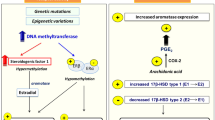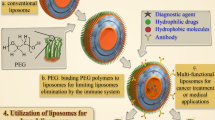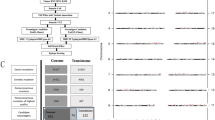Abstract
The purpose of the present study was to explore the therapeutic potential of serial administration of shedding-inducing endotoxin in a mouse tumour bladder model. The studies were conducted with two variants derived from the MBT-2 tumour namely, T5 and T50, the latter being far more aggressive than the former. It was found that T5 tumours responded to intravesical lipopolysaccharides (LPS) instillation by a considerable reduction in their pace of growth (P < 0.0001) when treatment was initiated 3 days after tumour implantation, but not when started after 7 days. The T50 variant did not respond to LPS when treated 3 days after implantation, but a considerable reduction in rate of growth occurred when treatment was started after 1-2 days. Shedding induced by intravesically instilled LPS was found to retard considerably the progression rate of experimental bladder tumour.
Similar content being viewed by others
Author information
Authors and Affiliations
Rights and permissions
About this article
Cite this article
Nativ, O., Medalia, O., Mor, Y. et al. Treatment of experimental mouse bladder tumour by LPS-induced epithelial cell shedding. Br J Cancer 74, 603–605 (1996). https://doi.org/10.1038/bjc.1996.408
Issue Date:
DOI: https://doi.org/10.1038/bjc.1996.408
- Springer Nature Limited




